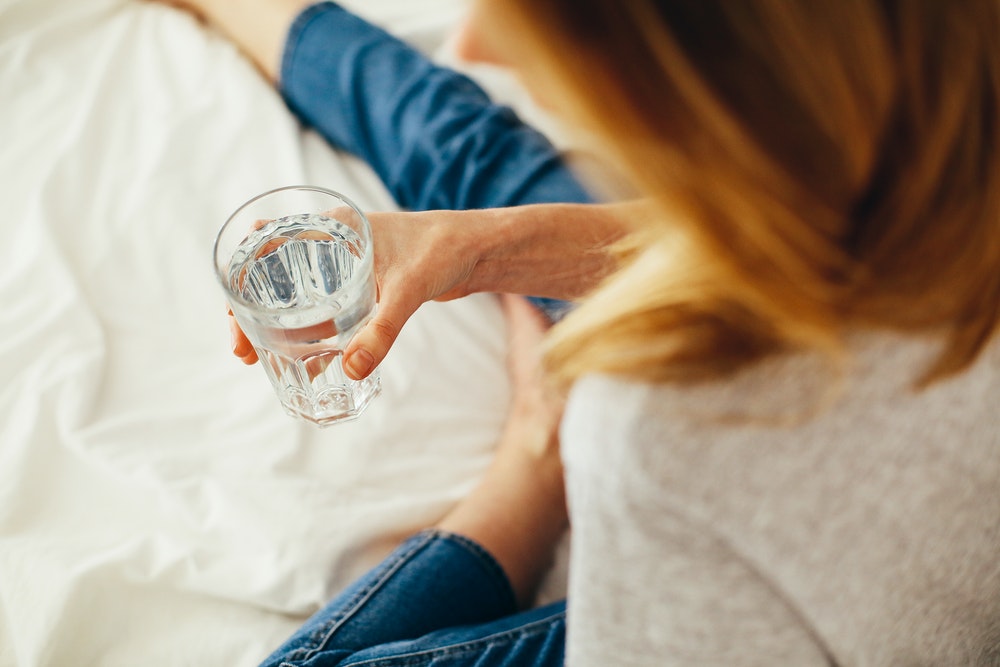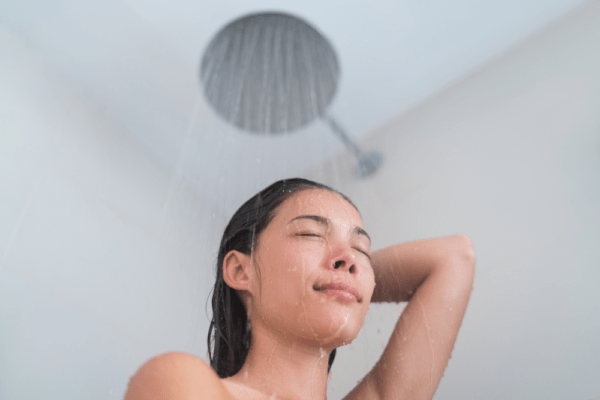The road to a fit and healthy body is good food and consuming lots of water/Fluids. It is the right thing to do, and we are notified about it through various means. It is not just the health experts prescribing this, but various health magazines, health & Fitness centers, etc. are more indulged in this idea.
Although it is proper to consume more fluids, there is a certain age at which when an individual reaches there, he/ she needs to be more conscious of how much fluids they have in their body. A new study published in The Journal Of Physiology states that as a person progresses towards Aging, it is a must that he/she drinks enough quantity of water to maintain and compensate for the change in body temperature at a certain age.
The experts from the University of Ottawa have given specific evidence to consume more fluids during the older period. Experts said that dehydration in a younger person could reduce heat loss or the body temperature, which is incapable of the older adults when they indulge in any exercise. It happens so because a young adult’s body can adjust itself to the rate of sweat loss and could prevent the body from dehydrating.
The inability to prevent the body from dehydrating after an intensive exercise routine or any other physical activity could strain the heart and increase older individuals’ heart rate. The experts have suggested that although this research involved older age men for observation, more senior people could be affected.
The research scholars have claimed that previously no observation was made on dehydration on the body temperature regulation based on the younger adults. Still, the present findings are surprising, which brought out specific essential age-related changes in an individual.
Dr. Scott A. Kaiser, who is a geriatrician at Providence Saint John’s Health Center in Santa Monica, California, says,
While changes in the regulation of body heat, sweating, hydration, and thirst that tend to occur with age are already known facts, this study delved deep into the specific change mechanisms. In particular, changes in response to dehydration and heat with exercise.
Dr. Kaiser added certain factors and prevailing facts about the current aged population in his statement. He told one of the health website Healthline that,
our aging population — with a 30-year gain in life expectancy over the last century, [with] roughly 10,000 baby boomers turning 65 each day, and declining birth rates — we are approaching the first time in human history in which our population will have more people over the age of 65 than under the age of 18. We need to continue to increase our understanding of the fundamental physiology of aging.
Although Countries like India have more young population still as people begin to age, fundamental changes are noticed, which are essential to know.
The researchers have also observed that because older people have a low sensitivity to the increased level of salt concentration in their blood, dehydration has a severe effect on their hearing ability. At the same time, they perform rigorous physical activity or are in a more significant heated premise. This causes a change in body temperature regulation.
Why be aware of the Aging Process and understand the change in body temperature?
As an individual grows old, there are so many variations in the body necessary to be observed. As the body grows weak, the functioning of specific organs begins to disrupt. Hence, fluids play an important role in helping maintain particular elements in the body in proportion.
The researchers of the study mentioned above noticed that compared to younger adults, the older adult’s body temperature regulation is not influenced by an increased salt level in the blood. Instead, the less efficient change in the body temperature regulation could cause heatstroke and heart problems.
Healthcare Professionals believe that as we grow older, the organ responsible for thirst, known as Hypothalamus, is less active than when we are involved, so older adults do not feel the urge to drink the young adults do. Due to the brain’s inability to send signals for the need to drink, an older adult must be given proper fluids even when they are not thirsty.
An older person’s dehydration can severely affect the kidney and could cause kidney failure disease. Older adults tend to prefer warmer places than cold ones, so a more warn environment could also be the reason for dehydration, and they could feel perspiration. Experts say that as people grow older, they are adamant about not accepting that their body changes and their age, and they need a different approach to practice another regimen from what they have been doing since their youth days.
The founder of Regenerative & Sports Medicine in Santa Monica, California, Dr. Rand McClain, said that older individuals generally ignore dehydration signs in their bodies. They do not feel that mild dehydration requires any lifestyle changes. Dr. McClain said,
We have air-conditioned environments, water fountains, and fluids so easily accessed in most places. However, many people do indeed live in a mildly dehydrated state because of the diuretic beverages they consume, such as coffee, tea, and caffeinated soft drinks and alcohol.
As we begin to age, we begin to dry out and our water composition can go from 70 percent to 50 percent.
Ways to Hydrate Yourself
The best way to keep oneself hydrated is by consuming lots of water every day (at least the standard amount prescribed by doctors). Dehydration causes diseases related to heart or kidney and could cause an underlying muscle strain or fatigue.
The fluids which have sugar preservatives take time to be processed by the body; water, on the other hand, is the most efficient fluid which doesn’t require any processing and helps the body functioning smoothly. People often believe that the foods which are, however, giving proper nutrition to the body add more value than consuming plain water whose nutritional value is unknown or not even there probably.
There could be other dehydration symptoms, as says the registered dietician with the website Exercise with Style, Dr. Kristan Gillespie. that includes dark and frequent urination, muscle problems, dry skin and lips, low blood pressure, etc.
The more we drink water, the more we are helping our body and immune system. Water helps in detoxification of the body, and this would also help the body rid itself of all the toxins and bacteria. So, it is best for the older adults to hydrate themselves as much when they witness themselves progressing towards growing age and change in the body.




